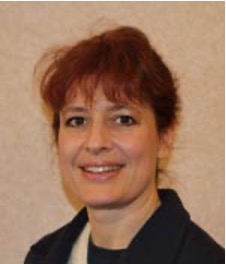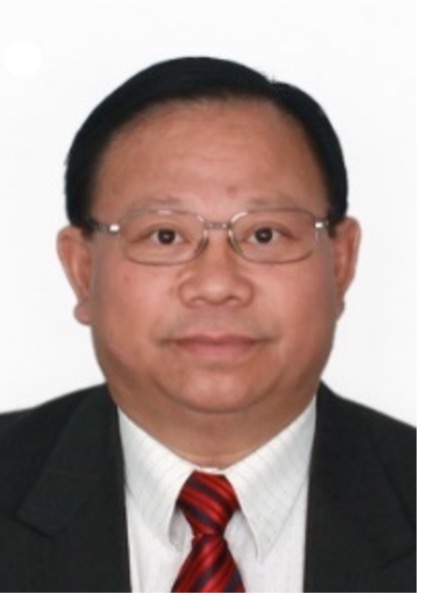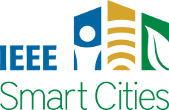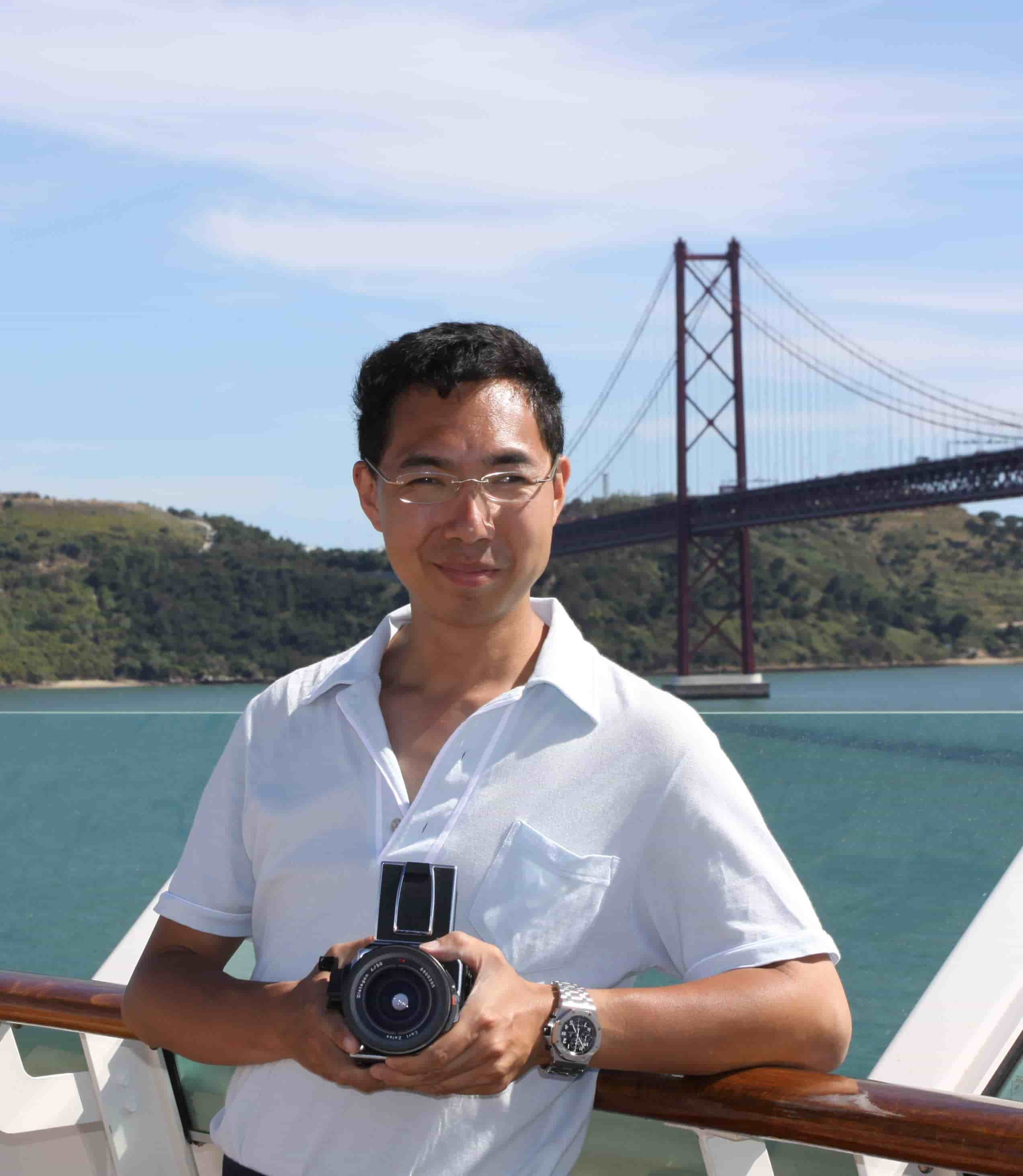The Scientific and Technical Community of IEEE ISC2 and Covid-19 Pandemic: A “Smart” Response for Smarter Cities All Over the World
Written by Chiara Boccaletti and Loi Lei Lai
The Sixth IEEE Annual International Smart Cities Conference (ISC2 2020) has been held as a virtual conference, from September 28 until October 1, 2020. IEEE ISC2 is the flagship conference sponsored by the IEEE Smart Cities Technical Community, a partnership of six IEEE technical societies and organizations.
The worldwide governmental restrictions, imposed to limit and slow the spread of COVID-19, changed our everyday lives dramatically. Therefore, the organizers decided to focus the 2020 edition of the conference on the responses given to these new challenges by smart city researchers and practitioners, city policymakers and administrators, critical infrastructure operators and industry representatives, economists and sociologists. Indeed, the theme of the 2020 conference was: “Smart Cities Solutions to New Challenges, Including a Pandemic”.
The idea was to stimulate an exciting debate, through interesting presentations and discussions, as part of keynote addresses, panel debates, workshops, tutorials and research talks. Indeed, one of the main reasons for cities becoming “smart” should be to safely and efficiently support the global citizens, also, and above all, in difficult times.
The response of the scientific and technical community was beyond expectations, in terms of both submitted contributions and participation in the discussion. IEEE Smart Cities demonstrated to be a fantastic point of aggregation for the most lively debates on the smarter ways to face the present and future world challenges.
Introduction
The pandemic generated by Covid-19 caused social and economic consequences that constituted a global challenge for all countries. During the early stage, and again for further periods, many countries adopted severe restrictions to limit and slow the spread of Covid-19, which changed our everyday lives dramatically. Most production activities were stopped, but those functional to essential services, like food production and delivery, healthcare, communication and technical products manufacturing, etc. As a consequence, all industries limited or completely stopped production and processes; tertiary sector companies resorted massively to smart working or layoffs, social gathering places such as schools or shopping centers were closed.
The unexpected sudden proliferation of homeworking and homeschooling has increased users’ expectations related to the wired, wireless, and mobile communication infrastructures. The pandemic affected also the operation of urban power and water distribution networks, waste management systems, and transformed our attitude towards governmental measures that not long ago would have been considered as severe violations of our individual freedom.
Luckily, unlike other pandemics of the past, a large part of the world's population could count on a more widespread and resilient energy system, which allowed metropolises to provide healthcare, food and services to millions of people isolated in their homes. The electricity system has supplied energy to hospitals and households continuously, allowing to manage the emergency services, and to guarantee telecommunications (including internet and voice calls) and other indispensable services, particularly in the cities. Indeed, cities of all dimensions all over the world were the most affected by this sudden change of paradigm in the service demand.
The radical change in the global scenario required a fast and effective response by the scientific and technical community. Researchers and professionals of the most diverse fields were stimulated to find out new solutions, to implement techniques or procedures until then just imagined, and to accelerate the deployment of devices and systems already at an advanced stage of development.
The IEEE International Smart Cities Conference
The IEEE International Smart Cities Conference is the flagship IEEE Smart Cities event which brings together practitioners, city policymakers and administrators, infrastructure operators, industry representatives and researchers to present technologies and applications, share their experiences and views with current and future Smart Cities applications. It includes keynotes and panel session discussions, tutorials given by experts on state-of-the-art topics, and special sessions on emerging topics with the aim of complementing the regular program.
The First IEEE International Smart Cities Conference (ISC2 2015) was held in Guadalajara, Mexico, one of the five IEEE Core Smart Cities (Kansas City, Guadalajara, Trento, Wuxi and Casablanca). The second edition took place in Trento, Italy, the third in Wuxi, China, the fourth in Kansas City, USA, and the fifth in Casablanca, Morocco.
IEEE ISC2 is the flagship conference sponsored by the IEEE Smart Cities Technical Community, a partnership of six IEEE technical societies and organizations:
- Communications Society (COMSOC)
- Control Systems Society (CSS)
- Industry Applications Society (IAS)
- Power & Energy Society (PES)
- Systems, Man and Cybernetics Society (SMC)
- Council on Electronic Design Automation (CEDA)
In addition, the 2020 conference is also supported by the IEEE Technology and Engineering Management Society.
The ISC2 2020 edition
The Sixth IEEE Annual International Smart Cities Conference (ISC2 2020) was held as a virtual conference, during September 28 – October 1, 2020. As mentioned above, the worldwide governmental restrictions had changed our everyday lives dramatically. Therefore, the organizers decided to focus the 2020 edition of the conference on the responses given to these new challenges by Smart City researchers and practitioners, city policymakers and administrators, critical infrastructure operators and industry representatives, economists and sociologists. Indeed, the theme of the 2020 conference was: “Smart Cities Solutions to New Challenges, Including a Pandemic”. The idea was to stimulate an exciting debate, through interesting presentations and discussions, as part of keynote addresses, panel debates, workshops and research talks.
Smart Cities are characterized by their high performance in domains such as economy, governance, mobility, and environment. The high degree of datification and connectivity embedded in a Smart City demands tools and mechanisms for data generation, manipulation and representation to enable its well-functioning. Therefore, on one hand, the Smart Cities were the most solicited by highly demanding issues, on the other hand, they were the natural framework where the responses to the stringent needs could be possibly found. Would have the Smart City community been enough “smart” to face those unprecedented challenges? Indeed, one of the main reasons for cities becoming “smart” should be to safely and efficiently support the citizens, also, and above all, in difficult times.
The Response of the Scientific and Technical Community
Many high-quality papers were submitted to ISC2 2020, making it very difficult to select those being presented at the conference. We received 150 submissions from 30 countries. Thanks to the hard work of many international reviewers, at last, 90 papers were selected for presentation. Unfortunately, quite a few good papers had to be rejected, to meet the IEEE standards. Many other high-quality technical events such as three keynotes, four tutorials, two workshops and seven panels were offered to the attendees.
The live presentations of accepted papers have been subdivided into 15 sessions, covering the following themes:
- City Services and Infrastructures
- Health and Society
- Transportation and Mobility
- ICT Technologies and Platforms
- Power and Energy Storage
- Education and Sustainability
- Cloud, Open data & Data analysis, Privacy, and Security
- Social aspects and Communications
- Artificial Intelligence, IoT, and Blockchain
- Smart mobility and Services
- Governance and Civic Engagement
- Smart Buildings and Environment Protection
In particular, the “Transportation and Mobility” technical area attracted the largest number of papers, making it necessary to split it over four sessions.
The most popular areas were Transportation, Energy, and Education, with 25.87%, 12.59% and 9.8% of the total submissions, respectively. For the accepted papers, most of them were from the US, Brazil and China, with a share of 26.86%, 16.70% and 9.30% of the total accepted papers, respectively.
The authors enthusiastically joined in a common effort to overcome the difficulties of the hard times we are still facing.
If we can find a positive effect of the terrible pandemic, this is the acceleration impressed by circumstances to the development of a series of services that will improve the quality of life of the citizens in the following years, in presence of special constraints or not.
For instance, the healthcare sector will benefit from the availability of efficient remote monitoring and diagnostic technologies for elderly people, which at the same time are privacy-protected; from the increased capability to analyse and elaborate contagions’ data to predict and combat future epidemic diseases; from the quick identification of risks caused by the wrong application of safety rules, etc.
The pandemic and the restrictions which followed also changed the relationship of the citizens with the transportation services dramatically. On one hand, homeworking and homeschooling reduced the incidence of traditional peak hours (and analysts agree in considering this as a permanent effect), on the other hand, new rules for passengers circulation have to be adopted. The improved management of fluxes, the optimisation of fleet vehicles availability and use, the creative exploitation of new means to communicate and inform the customers, etc., all are positive follow-ups of the increased efforts of our community.
As to the energy sector, during the periods of most serious restrictions, the power consumption suffered from a slowdown due to the reduced activities of industries, factories, business companies, schools and offices. However, the actual impact and the distribution over time of the electricity consumption was affected by the different pattern of the residential sector. The load demand forecasting in an unprecedented scenario represented a difficult challenge for the electricity system, and more auxiliary systems and services have to be deployed to cope with new demand profiles, while experiencing at the same time the epochal transition towards a power system based on renewable sources.
The educational sector had the fantastic opportunity to test the effects of a massive application of new tools and methods for remote learning. A clever interpretation of statistical data and survey results, allowed us to understand the impact of such means on both skilled users and beginners. Considering that the e-learning technologies will be more and more integrated with the traditional methods, these studies will be highly useful to orient the future trends in education.
The above are just a few examples of the advancements which, although stimulated by the pandemic, will improve the quality of systems and services also in less challenging times and will make our cities a better place to live in.
Conclusions
The organizing committee members and the entire team of IEEE volunteers worked many months with passion, enthusiasm, and commitment to the development of the conference. The result was undoubtedly worthy of this great effort. The response of the scientific and technical community which joined ISC2 2020 was beyond expectations, in terms of both submitted contributions and participation in all the discussions. The IEEE Smart Cities Technical Community demonstrated to be a fantastic point of aggregation for the most lively debates on the smarter ways to face the present and future world challenges. Actually, the solutions which made it possible to overcome the incredible number of difficult issues raised by the pandemic, will remain as a positive heritage for the next years. In a few words, we can say that the whole community was capable to apply the famous quote: “In the midst of every crisis, lies great opportunity”. We look forward to meeting everyone at the next smart cities conference: ISC2 2021.
This article edited by Zhang Wei
For a downloadable copy of the May 2021 eNewsletter which includes this article, please visit the IEEE Smart Cities Resource Center.


To have the eNewsletter delivered monthly to your inbox, join the IEEE Smart Cities Community.
Past Issues
To view archived articles, and issues, which deliver rich insight into the forces shaping the future of the smart cities. Older eNewsletter can be found here. To download full issues, visit the publications section of the IEEE Smart Cities Resource Center.



